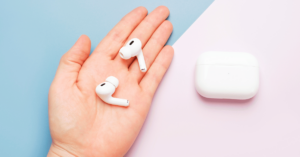Many of our patients come to us with similar questions about how to successfully habituate to tinnitus. Some of the most frequently asked questions are: (1) What makes tinnitus worse?; (2) Can you be successful with tinnitus?; (3) What is the most effective treatment for tinnitus?
Question #1: What Makes Tinnitus Worse?
There are many different things that can make tinnitus worse, but three of the most common culprits are loud noise exposure, stress and anxiety, and lack of sleep.
First, loud noise exposure can cause temporary threshold shifts in hearing, which can then result in increases in tinnitus volume. Loud noise exposure typically occurs in environments like loud bars or concert venues, and may create a temporary change in tinnitus. These temporary changes in tinnitus volume can even affect those with long-standing tinnitus who have otherwise habituated.
"Treble Health helped me reduce my tinnitus by about 80%, and now I can live my life again!"

"Treble Health helped me reduce my tinnitus by about 80%, and now I can live my life again!"
– Steve D.
Book a free consultation to learn which Treble Health solution is right for you. Join Steve and thousands more who have found lasting tinnitus relief.
Second, stress and anxiety is linked to the body’s limbic system and the emotional center of the brain, and thereby can trigger an onset or increase of tinnitus. You may notice that your tinnitus is typically least noticeable during periods of mental and physical calm and relaxation. It’s no surprise then that tinnitus can mirror our mental and physical state, and that periods of stress and anxiety can cause a concurrent spike.
Third, lack of sleep can impair our emotional, physical, and mental well-being, thereby laying the groundwork for a possible increase in tinnitus. For example, lack of sleep may make you more emotionally reactive to your tinnitus, causing you to notice it more and making it difficult to productively habituate to it. Sound sleep affords us a mental and physical reset, which is crucial for those committed to habituating to your tinnitus.
Nonetheless, it’s important to remember that these situations can happen unexpectedly and by accident. No one plans for an increase or spike in tinnitus, so it’s important that you approach these situations with positive awareness and equanimity so as to not create negative thought loops, which can make your tinnitus even worse.
Most of our patients ultimately learn how to notice periods of high stress and anxiety and track resulting tinnitus increases. Tinnitus and stress can also be so interrelated that you may not know which is triggering which. Sometimes, an outside factor beyond tinnitus may induce stress; other times, you may notice an increase in stress as a result of a tinnitus spike. It’s best to pay attention to how your brain is making these associations, and to be aware of any negative thought patterns so that your tinnitus doesn’t get worse.
Question #2: Can You Be Successful With Tinnitus?
It is absolutely possible to be successful with tinnitus, and to continue to live as you once did and do well across all areas of life. While tinnitus has the potential to be annoying, troublesome, and stressful, it ultimately doesn’t need to inhibit you.
Since the brain perceives tinnitus in the same manner as all other sounds, it’s possible to reach a point where your brain habituates to it and effectively filters it out, allowing you to focus on the things you want to do. In the same way that people who live by airports, highways, or busy establishments learn to habituate and tune out certain parts of their environment, the brain is capable of habituating to tinnitus. When tinnitus first appears, the brain may perceive it as a threat or danger and thus direct more focus to it. But once the brain habituates to tinnitus, it is treated just like any other sound and no longer triggers a reactive emotional response in the limbic system.
Question #3: What Is The Most Effective Treatment For Tinnitus?
Numerous studies have found that a combination of sound therapy with counseling is the most effective treatment for tinnitus. Sound therapy relies on tinnitus maskers, small devices that play white or pink noise into the ear canals. Counseling involves both tinnitus training therapy as well as cognitive behavioral techniques, which work in tandem to change how the mind and body react to tinnitus. That said, it’s important to realize that even with this dual-pronged approach, lasting results typically come only after at least a three- to six-month period of treatment.
There’s also many ways for patients to incorporate sound therapy. Some may use a sound machine or speaker to get things started. The best results are with ear-level maskers or hearing aids with built-in sound therapy. Sound therapy is a crucial component of tinnitus treatment, as it provides background noise that helps to reduce the overall volume of tinnitus and support habituation.
While there are other experimental and alternative treatments (like bimodal stimulation) currently in development, a dual approach of sound therapy and counseling is—and will be—the most effective tinnitus treatment for the foreseeable future.
Next Step: Book Free Consultation
- 75% of patients reduced their tinnitus within three months after following our recommendations.
- "I feel like Treble Health literally gave me my life back." - Randy S. (verified customer)
- Join thousands of people who have reduced their tinnitus after scheduling a free consultation.












